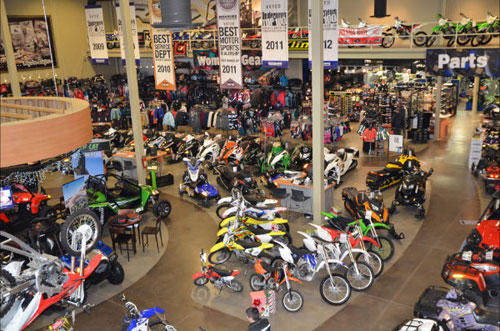The Who, What, When, Where, And Why Of Powersports CRM Data Mining
by Black Ink Team

A CRM might just be the part you need to shift your powersports dealership into top gear. Don’t believe us? Here are five solid reasons why.
The ‘Who:’
Data mining a CRM platform that has been enriched with customer information is a surefire way to build accurate customer profiles, pinpoint demographics you should target, identify existing customers who would be the most receptive to upselling/cross-selling offers, and more. Instead of each salesperson managing their own records, or different types of sales data being stored in separate locations, with a CRM all of the information you need to get a full 360-degree view of your customers is in the same place.
The ‘What:’
Tying sales information to product information within a CRM allows you to calculate which products sell the fastest given certain conditions. For example, you can track which helmets your customers purchase most frequently when buying new motorcycles. That insight will let your salespeople know exactly which helmets to show customers buying new motorcycles at checkout and which ones not to. Similarly, you could place different accessories close to the register each week and see what effect, if any, that has on their sales.
The ‘When:’
Timing is everything, and with a CRM keeping in-depth records of results for your powersports dealership it can help you hone in on the perfect amount of time to wait before contacting a customer who just made a purchase, with promotional offers on upgrades, accessories, or etc. You could also calculate the average time customers of a certain type wait before buying a new motorcycle (or ATV, UTV, snowmobile, etc.) which will let you know when to target them in with direct mail campaigns. Furthermore, if your CRM has built-in marketing automation tools, you can make following up with customers as simple as pushing a button.
The ‘Where:’
By gathering your customer's home addresses, either from product registrations or financial documents, in a CRM you can analyze where your customers are primarily located, which will let you make better guesses as to where you should place billboards. The same information could be used to help you decide where to open a second showroom, should you be looking to expand.
The ‘Why:’
With a custom CRM, you can add homebrew drop-down fields for specific questions your salespeople ask your customers, such as “why did you choose to come to our store and not go to our competitor’s?” If you wanted to, you could keep track of the answers to these types of questions in a simple spreadsheet, but using a CRM makes it easier to sort answers by customer type, salesperson ID number, service counter, etc.
